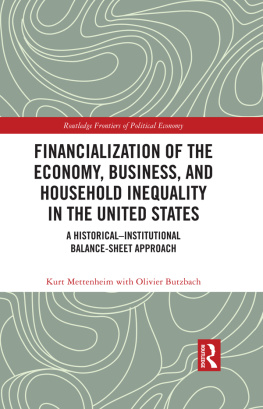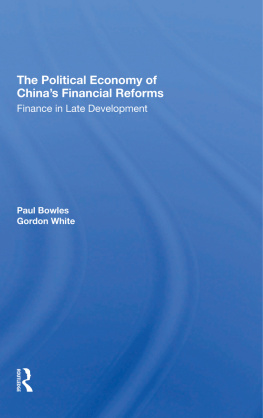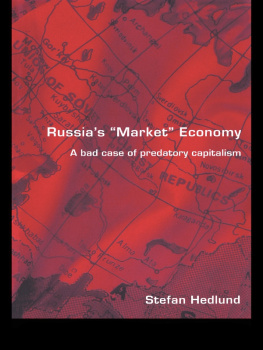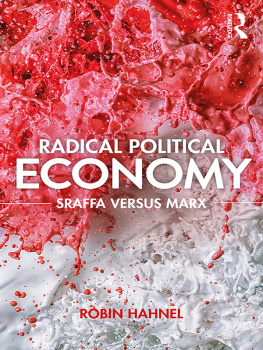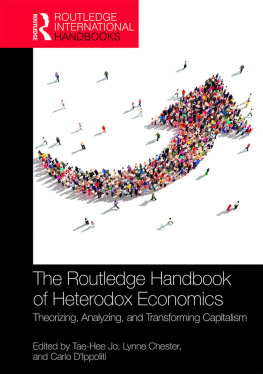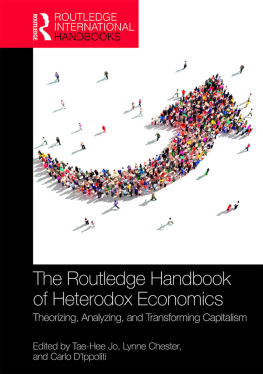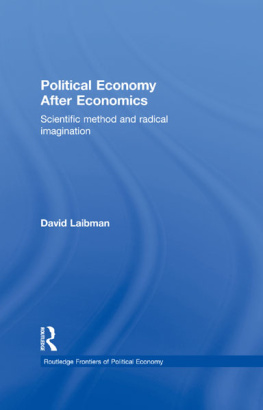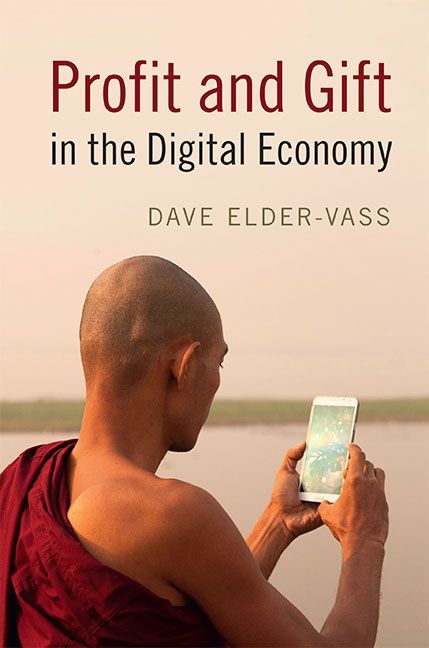Our economy is neither overwhelmingly capitalist, as Marxist political economists argue, nor overwhelmingly a market economy, as mainstream economists assume. Both approaches ignore vast swathes of the economy, including the gift, collaborative and hybrid forms that coexist with more conventional capitalism in the new digital economy. Drawing on economic sociology, anthropology of the gift and heterodox economics, this book proposes a ground-breaking framework for analysing diverse economic systems: a political economy of practices. The framework is used to analyse Apple, Wikipedia, Google, YouTube and Facebook, showing how different complexes of appropriative practices bring about radically different economic outcomes. Innovative and topical, Profit and Gift in the Digital Economy focusses on an area of rapid social change while developing a theoretically and politically radical framework that will be of long-term relevance. It will appeal to students, activists and academics in the social sciences.
Dave Elder-Vass teaches sociology and digital economies at Loughborough University. Before returning to academic life he was a senior IT manager in the private sector. This book brings together his expertise in digital technology and its use in business with his academic work on economic sociology and particularly the relation of gifts to the conventional economy. His previous publications include The Causal Power of Social Structures (Cambridge University Press, 2010) and The Reality of Social Construction (Cambridge University Press, 2012).
University Printing House, Cambridge CB2 8BS, United Kingdom
Cambridge University Press is part of the University of Cambridge.
It furthers the Universitys mission by disseminating knowledge in the pursuit of education, learning and research at the highest international levels of excellence.
www.cambridge.org
Information on this title: www.cambridge.org/9781107146143
Dave Elder-Vass 2016
This publication is in copyright. Subject to statutory exception and to the provisions of relevant collective licensing agreements, no reproduction of any part may take place without the written permission of Cambridge University Press.
First published 2016
Printed in the United Kingdom by Clays, St Ives plc
A catalogue record for this publication is available from the British Library
Library of Congress CataloginginPublication Data
Names: Elder-Vass, Dave, author.
Title: Profit and gift in the digital economy / Dave Elder-Vass.
Description: Cambridge ; New York : Cambridge University Press, 2016. | Includes bibliographical references and index.
Identifiers: LCCN 2016010294| ISBN 9781107146143 (Hardback) | ISBN 9781316509388 (Paperback)
Subjects: LCSH: EconomicsSociological aspects. | Economics. | Information technologyEconomic aspects. | BISAC: SOCIAL SCIENCE / Sociology / General.
Classification: LCC HM548 .E43 2016 | DDC 330dc23 LC record available at https://lccn.loc.gov/2016010294
ISBN 978-1-107-14614-3 Hardback
ISBN 978-1-316-50938-8 Paperback
Cambridge University Press has no responsibility for the persistence or accuracy of URLs for external or third-party internet websites referred to in this publication, and does not guarantee that any content on such websites is, or will remain, accurate or appropriate.
For Alisa
Contents
Acknowledgements
I would like to thank the many people who have discussed the issues considered in this book with me, both face-to-face and digitally, for the gift of their attention and their ideas. Inevitably I will miss some, for which I apologise, but those of you I can remember are: Aleksi Aaltonen, Margaret Archer, Michaela Benson, Dave Berry, Gurminder Bhambra, Roy Bhaskar, Tom Brock, Gideon Calder, Mark Carrigan, Bob Carter, Daniel Chernilo, Rachel Cohen, Dean Curran, Asaf Darr, Gerard Delanty, Steve Fleetwood, Rob Garnett, Des Gasper, Christian Greiffenhagen, Mark Harvey, Tuukka Kaidesoja, Ruth Kinna, Chris Land, Tony Lawson, Terry Leahy, Paul Lewis, Andrea Maccarini, Lee Martin, Ashley Mears, Jamie Morgan, Graham Murdock, Karen OReilly, Lynne Pettinger, Jonathan Preminger, Olli Pyyhtinen, Hartmut Rosa, Sandy Ross, Michael Roy, Balihar Sanghera, Andrew Sayer, John Scott, Dennis Smith, David Thomas, Hilary Wainwright, Erik Olin Wright and the very helpful anonymous reviewers of both this book and the various papers I have drawn on in writing it.
I owe particular thanks to Dean Curran and Aleksi Aaltonen for reading parts of this book and giving me very helpful feedback, to Loughborough University for granting me the research leave that was used to write the vast majority of this book and my colleagues in the sociology group there for being the most supportive colleagues imaginable. As always, my greatest thanks are owed to my wife Alisa for both her tolerance and her encouragement.
Finally, I must thank several journals and their publishers for permission to re-use material from the following articles. None of them are reproduced in full, but sections are scattered throughout the book:
Towards a Social Ontology of Market Systems, CRESI Working Paper 200906, University of Essex, 2009 Dave Elder-Vass, used in .
.
Giving and Social Transformation, Journal of Critical Realism (2014) 13:3, 261285, 2014 Maney Publishing, used in .
Commerce, Community and Digital Gifts in Robert Garnett, Paul Lewis and Lenore Ealy (eds) Commerce and Community: Ecologies of Social Cooperation , Routledge (2014), 236252, 2015 Dave Elder-Vass, used in .
The Moral Economy of Digital Gifts, International Journal of Social Quality (2015) 5:1, Berghahn Books, 2015 Dave Elder-Vass, used in .
Free Gifts and Positional Gifts: Beyond Exchangism, European Journal of Social Theory (2015), doi: 10.1177/1368431014566562, Sage Publications, 2015 Dave Elder-Vass, used in
Part I Diverse economies
Introduction
Over three billion times a day, someone types a search term into Google economy, which is usually seen as an alternative to the commercial economy, making personal connections on the basis of reciprocal obligations.
The best-established ways of understanding our economy are the neoclassical
The real economy, however, is far more economy, with its proliferation of innovative economic forms.
Our failure to recognise the diversity of our existing economic systems is doubly consequential. On the one hand, it produces a warped and damaging understanding of how the existing economy works; and on the other, it radically limits our ability to think creatively about economic futures. Capitalism as a universal system, if such a thing could even exist, would be utterly inadequate to the challenge of meeting human needs, but this does not mean that the solution is some other universal system. If we are to think productively about alternatives we must stop imagining our economic futures in all or nothing terms: capitalism universal vs. capitalism destroyed.
The central original contribution of this book is to propose a new framework that enables us both to see and to analyse a vast range of diverse economic forms, and to illustrate that framework by applying it to cases in the contemporary digital economy. In this framework, which I call a political economy of practices , each economic form is understood as a complex of appropriative practices : social practices that influence the allocation of benefits from the process of production. Different combinations of appropriative practices give us different economic forms with very different effects on who receives what benefits and harms from the economy. The political economy of practices examines how the practices concerned interact to produce those effects, but it also takes an evaluative stance, offering grounds to judge which forms are more desirable in any given context.


